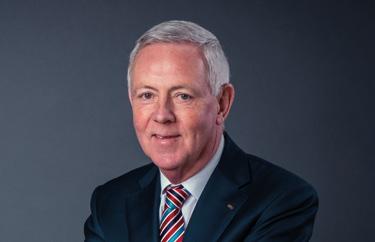Jehovah’s Witnesses and bloodless kidney transplants Considering the ethical dilemmas transplantation urologists may face Prof. Enrique LledóGarcía Chairman of the EAU Section of Transplantation Urology Madrid (ES) enrique.lledo@salud. madrid.org The Jehovah’s Witnesses (JW) population refuses transfusions of homologous and autologous blood products that have been removed from continuity with the body. This refusal is based on their interpretation of the Bible. According to their beliefs, acceptance of blood or blood products will forfeit their chance for resurrection and eternal salvation. Most JW accept crystalloid solutions, synthetic colloid solutions, haemoglobin substitutes as perfluorocarbons or artificial haemoglobin solutions, and recombinant proteins as erythropoietin or activated factor VII, while whole blood, red blood cells, platelets and plasma are unacceptable. Individual decisions need to be made regarding administration of purified fractions of plasma, as immunoglobulins and albumin, or solid organ transplants. Additionally, patients need to make personal decisions regarding (heart or venovenous) bypasses, haemodilution and intraoperative red cell salvage. This request may be challenging for physicians, as blood products may be lifesaving in some severe medical conditions. On the other hand, the medical community has learned that blood products may submit patients to some risk of life-threatening incidents, of allergic reactions, and of various known (or unknown) blood-borne infections. These reasons, added to the costs and the scarcity of some blood components, have forced the development of blood product-free medical strategies.
That JW may refuse lifesaving blood transfusions is a morally accepted feature of contemporary medical practice. The principle of respect for autonomy supports this, and there is seldom reason to interfere with this choice because it rarely harms another individual. Advances in surgical technique have made it possible for transplant surgeons to perform bloodless organ transplants, enabling JW to benefit from this treatment. When the transplant organ is a directed donation from a family member or friend, no ethical dilemma arises. Ethical dilemma However, when a JW cannot identify a living donor and wishes to be listed for organ transplant, the transplant team may face an ethical dilemma. On the one hand, it wishes to provide care to the patient that is compatible with her or his preferences. On the other hand, the team may wonder if it is fair to other patients who need an organ and will accept blood transfusion to include the JW patient on a waiting list for a donated organ. If the JW patient is listed and receives an organ, then a patient who also needs an organ, and who is willing to accept all care to optimize the success of the transplant, may be denied an organ. To frame the ethical dilemma outlined above specially in the setting of a JW in urgent need of a kidney, is important to locate these programmes in highvolume centres, with multidisciplinary protocols, including medical, surgical, ethical and legal considerations. It is necessary and probably time to review and update the evolution of the JW position on blood transfusion and the medical community’s efforts to provide care that accommodates this religious commitment. If someone wants the Witnesses to be denied transplant in the name of justice, there must be an ethically sound reason. There are currently two rationales in the literature: 1) This attitude coming from a professional is unacceptable because it will cost lives.
2) Resources should be allocated to patients who comply with the standard of care. It is evident to argue that neither apply to this dilemma. It is also important to emphasise the relevance of examining the data on outcomes of transplant with and without transfusion. A global interpretation of the published data on transplant without transfusion is that the outcomes are similar.
”In the absence of specific risk factors for the patient, it is not ethical to refuse to include a Jehovah’s Witness patient on a waiting list for a kidney transplant.” However it is not a question of a “pendulum law”: one extreme or the opposite. Patient-specific considerations must be taken into account preoperatively in order to balance the ethical and pure medical aspects to take the good decision. While organ transplantation can be performed safely in JW, there are multiple factors seen in some particular cases that warrant analysing: 1) The potential use of stricter transplant exclusionary criteria, given the specific recipient’s advanced age and pre-existing co-morbidities, which likely increase risk of developing severe anaemia intra- or post-operatively 2) The recipient’s emotional/psychological pre or post-operative state of high anxiety, which can be developed in the scenario of a hypothetical/ objective anaemia In hindsight, the anxiety level may be reduced if patients are also offered pre and/or post-operative psychological counselling sessions. Thus, it is of utmost importance to have strict enough criteria for proper selection of a JW candidate for kidney transplantation.
During recent decades, kidney transplant blood product requirements have significantly decreased in most centres, coinciding with better patient and graft survival rates. This improvement may be related to the better experience of the medical teams with operative recipient management, better surgical techniques, kidney transplantation indication and kidney graft use and preservation. Multidisciplinary transplant teams have also faced this situation, with different strategies to overcome problems and doubts. It is possible to increase haematocrit and platelet levels in patients awaiting kidney transplantation and be able to reduce the need of blood products during transplant procedures. Kidney transplantation can be feasible and safe In conclusion, kidney transplantation in selected end-stage renal disease JW patients can be feasible and safe, provided that it is carried out at experienced centres and according to a multidisciplinary approach, considering a complete preoperative discussion among professionals and -obviously- with the patients in order to evaluate all the expectations both subjective and objective. In the absence of specific risk factors for the patient, it is not ethical to refuse to include a Jehovah’s Witness patient on a waiting list for a kidney transplant. However, the evidence on the international heterogeneity in transplant institutes’ polices for accepting Jehovah’s Witness patients must be considered. Due to space constraints, the reference list can be made available to interested readers upon request by sending an email to: communications@uroweb.org. Monday 12 July, 10.00 – 11.00 CEST Thematic Session 19 Kidney transplantation in 2021 Virtual Room 3
Scientific Program EAU21 Virtual – Live surgery part V “8th of July 2021 - 18.00 – 18.10” ‘Robotic Pelvic Lymphadenectomy’ by Prof J. Rassweiler, Heilbronn ‘Lymphocele occurs in many surgeries on various parts of body, including pelvis [1], mediastinum, axilla, neck, aorta and peripheral vasculature [2]. Pelvic lymphocele is usually related to pelvic lymphadenectomy and renal transplantation. Development of a lymphocele is a frequent complication after pelvic lymph node dissection (PLND) for nodal staging in prostate cancer. [3,4].‘
Manufacturer of GELITA TUFT-IT®
As an evolution from GELITA MEDICAL’s patented technology for the production based fleece , we intend to develop of the world's first gelatin-based a specific line extension for prevention of lymphatic leakage. For detailed first clinical experiences we invite you to the above-mentioned presentation including surgical video.
Exclusive Distributor in Germany 1)Tinelli A, Mynbaev OA, Tsin DA, Giorda G, Malvasi A, Guido M, Nezhat FR. Lymphocele prevention after pelvic laparoscopic lymphadenectomy by a collagen patch coated with human coagulation factors: a matched case-control study. International journal of gynecological cancer. 2013;23:956– 963; 2) Metcalf KS, Peel KR. Lymphocele. Annals of the Royal College of Surgeons of England. 1993;75:387–392; 3) Sarah Buelens, Charles Van Praet , Filip Poelaert , Andries Van Huele , Karel Decaestecker , Nicolaas Lumen. Prospective Randomized Controlled Trial Exploring the Effect of TachoSil on Lymphocele Formation After Extended Pelvic Lymph Node Dissection in Prostate Cancer. 2018 Aug;118:134-140.doi:10.1016/j.urology.2018.05.008. ; 4) Outcomes and complications of pelvic lymph node dissection during robotic-assisted radical prostatectomy. Liss MA, Palazzi K, Stroup SP, Jabaji R, Raheem OA, Kane CJ World J Urol. 2013 Jun; 31(3):481-8.
June/July 2021
EUT Congress News
43











